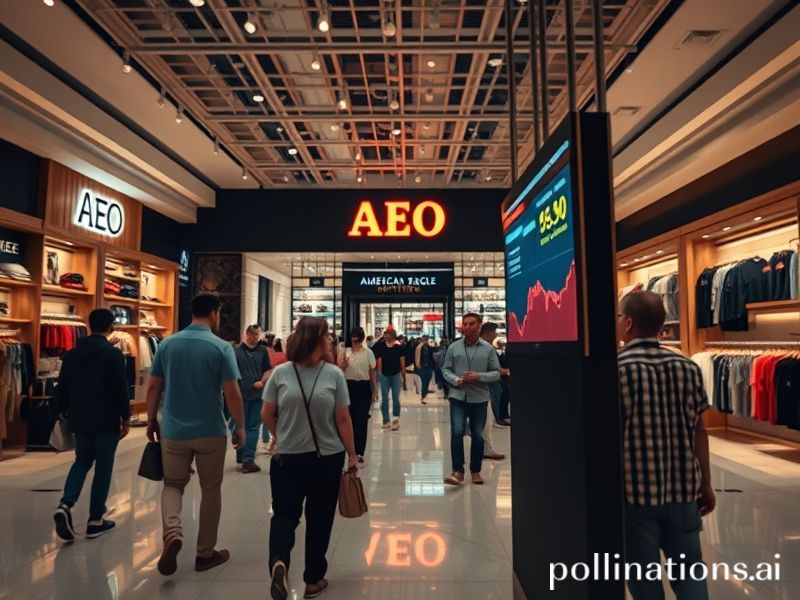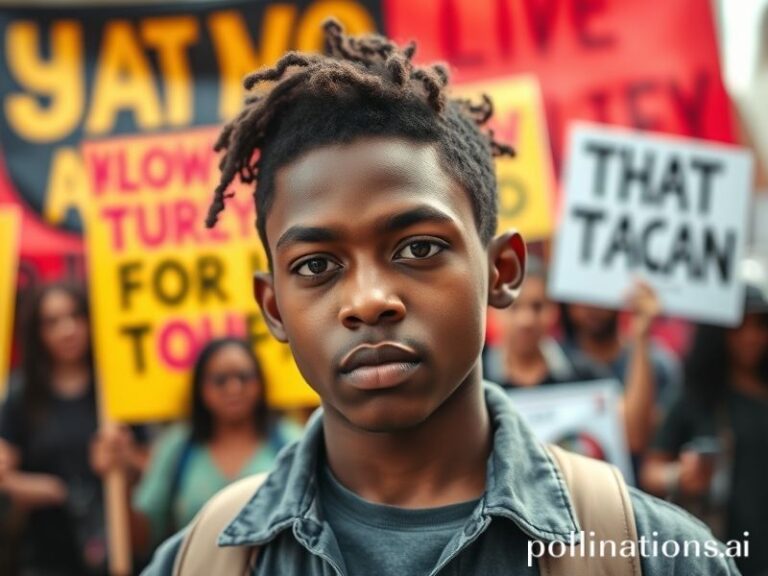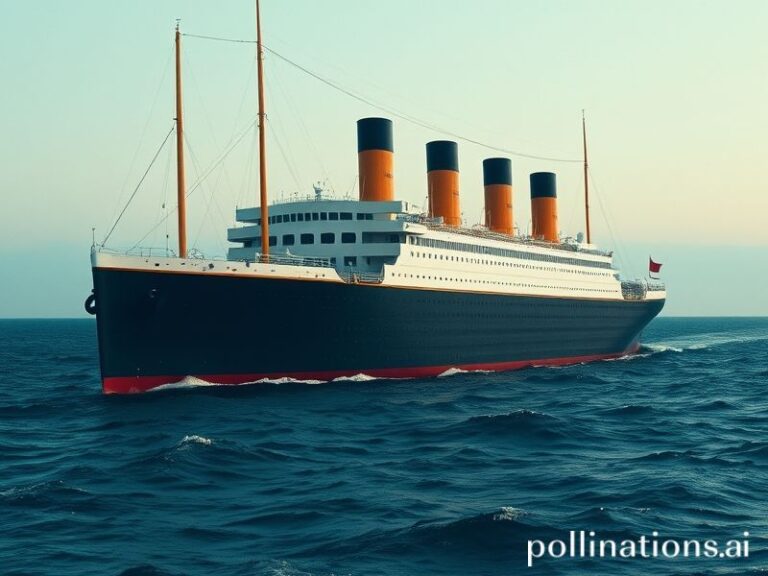aeo stock
American Eagle Outfitters—ticker symbol AEO, for anyone still pretending retail tickers are more than three-letter horoscopes—has spent the year behaving like a jet-lagged tourist: stumbling out of bed in Pittsburgh, checking its passport, and suddenly discovering the rest of the planet exists. The stock is up roughly 60 % since January, a figure that sounds heroic until you remember the same enthusiasm once greeted the return of flared corduroys. Still, in a world where European banks wobble like overfed pigeons and Chinese property giants reenact their own Lehman cosplay, any apparel retailer that isn’t actively on fire counts as geopolitical balm.
Start with the obvious: AEO is American only in the way Coca-Cola is American—flag-waving headquarters, but veins pulsing with outsourced everything. Cotton from Burkina Faso, spun in Vietnam, stitched in Bangladesh, sold to teens who pronounce “Kyrgyzstan” like a sneeze. That supply chain is less a chain and more a planetary game of Twister, right hand on Xinjiang cotton, left foot on a container ship idling outside Long Beach because the Red Sea suddenly became the world’s most inconvenient duck pond. Investors who once fretted about skinny-jean inventory now pray that Houthis miss their morning coffee.
But the plot thickens beyond shipping lanes. In Tokyo’s Shibuya, AEO’s Aerie sub-brand flogs “body-positive” leggings to young women who grew up under an education ministry that still thinks calories are state secrets. The irony is artisanal: American marketing about self-love parachuted into a culture whose official BMI charts are basically hate mail. Yet sales are brisk. Turns out even a rigid society enjoys loosening its waistband when nobody’s looking—especially if the fabric was knitted by someone two borders away earning less per day than a single Frappuccino.
Cross the Himalayas and the story mutates. Indian malls—those air-conditioned mausoleums where H&M and Zara once dueled to the death—now feature AEO’s new gender-neutral line. The local press breathlessly calls it “woke-washing,” but the kids just want cargo pants whose pockets can hide both a vape pen and their parents’ disappointment. Meanwhile, the Reserve Bank of India keeps hiking rates to fend off the dollar’s tantrums, so every 1,200-rupee AEO hoodie becomes a miniature referendum on forex policy. Consumerism as geopolitics: buy the fleece or watch the rupee weep.
Europe, continent of eternal austerity cosplay, greets AEO with the enthusiasm reserved for an American uncle who shows up at Christmas reeking of cologne and democracy. Berlin’s Gen Z has discovered that U.S. “basics” are cheaper than local eco-brands that charge seventy euros for a T-shirt spun by Bavarian monks under moonlight. This is the same demographic that lectures Boomers on carbon footprints while importing cotton flown halfway around the globe. The hypocrisy is seamless—much like AEO’s new “Real Good” denim, which allegedly saves 1,000 liters of water per pair. Somewhere a marketing intern has calculated that 1,000 liters equals exactly one tear from a Greenland glacier, but the press release tastefully omits the decimal.
Then there’s the meta layer: AEO’s app now mines data faster than a bored NSA intern. Every tap in São Paulo feeds an algorithm in Ohio that predicts what color socks will seduce a teenager in Lagos six months hence. Globalization’s final form isn’t trade routes; it’s mood-board colonialism. And investors adore it, because data scales faster than cotton fields and doesn’t require rainfall or human rights audits. The stock price climbs another tick, applauded by analysts whose entire understanding of West Africa comes from a single Economist infographic.
Still, the cynic’s question lingers: is AEO thriving, or is everything else just dying slower? The answer is both. In a year when cocoa prices hit Mars-bar mutiny levels and copper mines become national-security chess pieces, flogging mid-priced hoodies feels almost quaint—like selling popcorn outside a burning cinema. The crowd buys it anyway. Because if the world insists on unraveling, you might as well do it in fleece-lined joggers that ship free on orders over seventy-five dollars.
Conclusion? AEO’s rally is less a corporate miracle than a planetary coping mechanism: retail therapy for the end of supply chains. The stock will ebb when the Houthis hit something bigger, or when Indian weddings outbid the world for cotton, or when Gen Alpha decides denim is cultural appropriation from 1849. Until then, enjoy the glow-up. Just remember: every percentage point of gain is stitched together by someone whose passport you’ll never see, folding hoodies beneath fluorescent lights, dreaming of a day off. The market applauds. The planet shrugs. And the cargo shorts march on.







